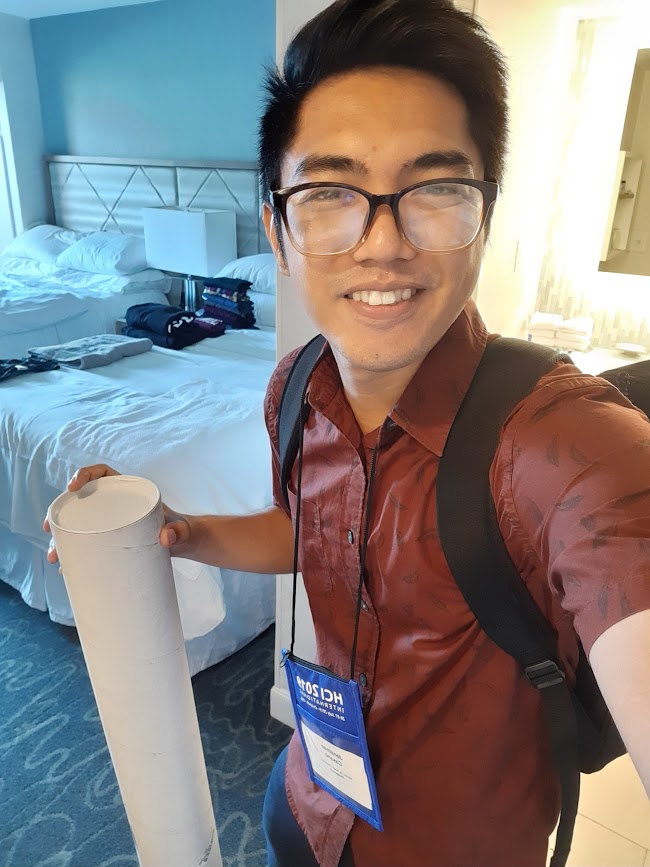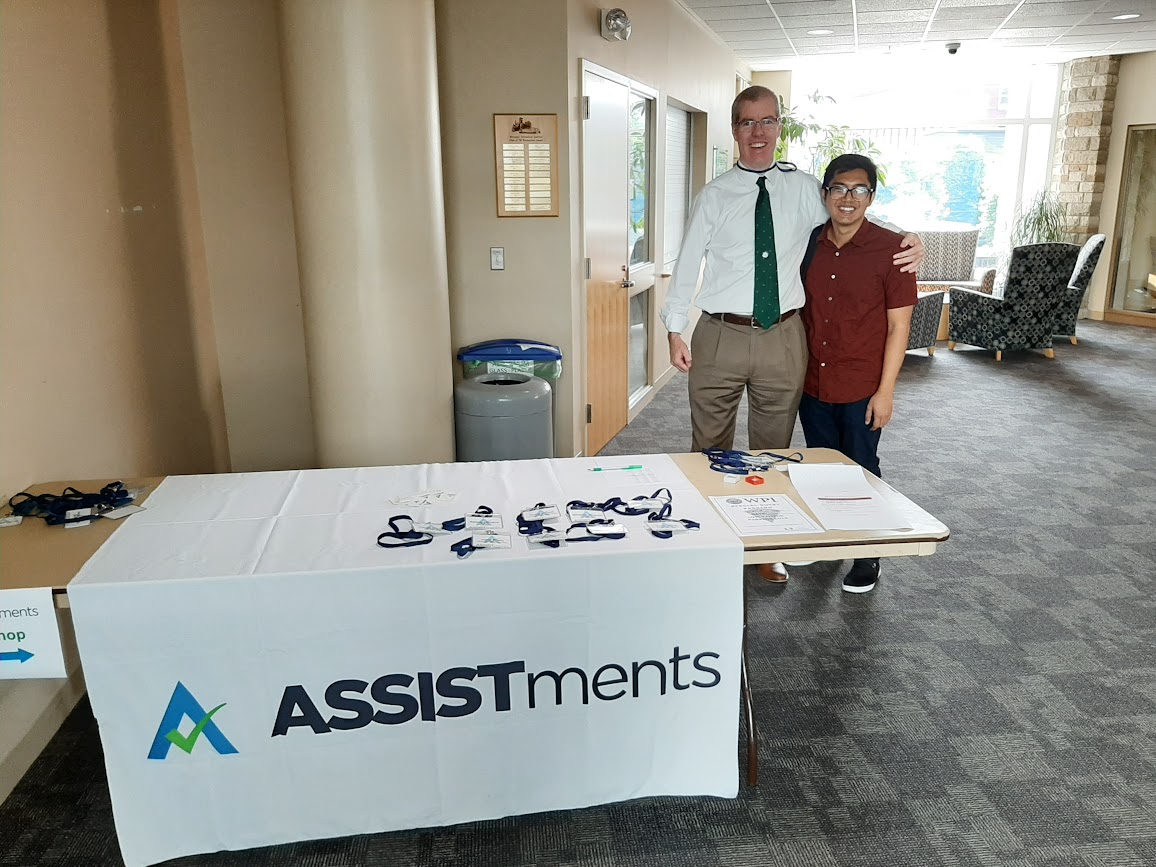Neithan Casano attended this year’s Advanced Learning Theories, Technologies, Applications and Impacts meeting at The FedEx Institute of Technology in the University of Memphis where he presented the mobile applications that were created from the MAGIS and JOLLY grants of ALLS.
In this meeting, professors and students coming from four member universities (University of Memphis, University of Graz, National Taichung University and Central China Normal University), as well as invited industry partners (inq-ITS and SquirrelAI) gathered to exchanged ideas on the direction and creative implementations of Adaptive Instructional Systems (AIS) and various methods of computer-aided learning.
A full version of the presentation may be found in the public ALLS facebook page and a few notes regarding what has transpired during the ALTTAI meeting may be found here.
Neithan was also invited by Dr. Frank Andrasik to present the MAGIS and JOLLY apps to the faculty and graduate students of the department of Psychology of the University of Memphis.



Neithan Casano and Dr. Didith Rodrigo presented a poster entitled Card-Collection Mechanics in Educational Location-Based AR Games: Transforming Learning Goals to Virtual Rewards and a paper entitled Ibigkas! 2.0: Directions for the Design of an Adaptive Mobile-Assisted Language Learning App in the 21st International Conference on Human-Computer Interaction held at the Disney Swan and Dolphin Resort in Orlando, Florida.
A full version of the Ibigkas presentation can be found in the public ALLS page via this link.
Chinese participants viewing the posters were using Baidu’s AR camera to translate the posters into Mandarin (hcii 3).


Neithan met with Dr. Ryan Baker and Dr. Jaclyn Ocumpaugh to discuss research and academic life. Neithan presented the MAGIS and JOLLY apps to the members of Dr. Ryan’s Educational Data Mining laboratory. Dr. Jaclyn is co-author in the Ibigkas! project and Dr. Ryan is currently working on early prediction of at-risk students in new school districts in the United States.


Neithan met with Dr. Neil Heffernan in the Department of Computer Science at Worcester Polytechnic Institute where he was shown the latest version of Assistments. Assistments is a free education tool that teachers may use to monitor student progress and concept mastery. The technology is currently used by over a thousand teachers in 42 states in the USA and in 14 countries. Currently, they are conducting 10-year tracer studies to determine if students who have used Assistments when they attended high school ended up working in STEM-related fields.
Neithan also met with Francis Castro and Dr. Ivon Arroyo at the University of Massachusetts, Amherst. Francis is currently working on learning models for novice programming courses under the mentorship of Dr. Kathi Fisler. Dr. Ivon is continuing their work on Embodied Cognition (EC) Learning Frameworks. Just recently they have deployed a multi-language version of their EC games for Mathematics and are currently testing its acceptance and effectivity in Argentina.









